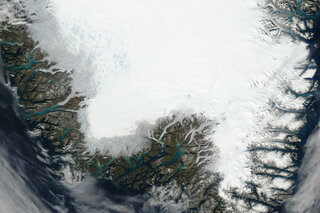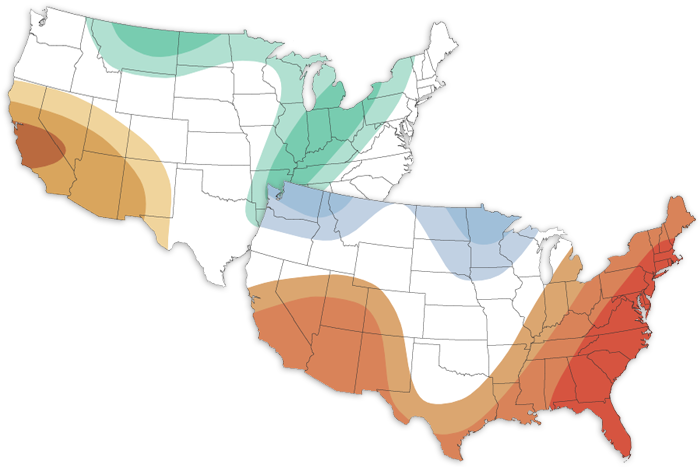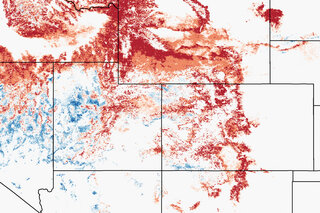Three experts explain why La Niña provides no relief from the excess planetary heating due to rising greenhouse gases.
Climate Change & Global Warming

Unusually large, late melt spike on Greenland in September 2022
September 23, 2022
Global surface temperature was among the 6 warmest years on record, despite a "double-dip" La Niña event that chilled the Pacific much of the year.
En realidad, desde diversos puntos de vista, es más difícil pronosticar el tiempo para dentro de dos semanas que pronosticar el clima con décadas de anticipación.
Most models project that further warming will decrease the total number of Atlantic hurricanes, but increase the number of very strong storms.
Two NOAA hurricane experts explain why it’s still so hard to say whether global warming to date has affected the number or intensity of Atlantic hurricanes.
If you're planting a garden this spring, this set of maps based on U.S. climate data can help you see how planting zones across the country have shifted over the past few decades.
In many locations, spring snow also melts earlier, reducing summer streamflows.

The February 2022 climate outlook favors warmer-than-average temperatures across the southern and eastern U.S., with cooler and wetter conditions favored across the north. Out West, a drier-than-average month is forecast.
